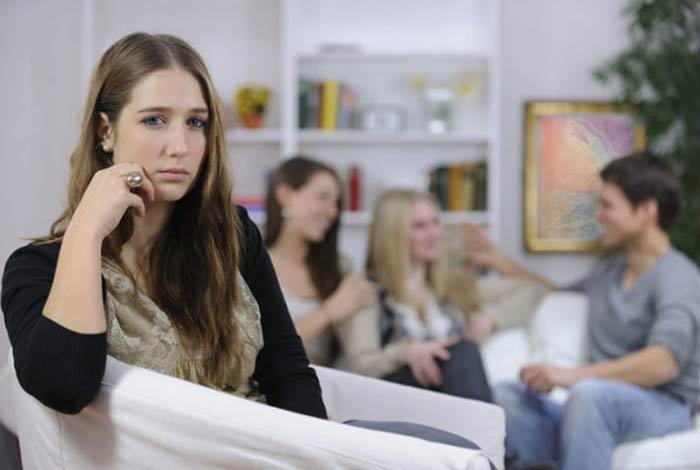
Know If You Have Cherophobia – The Fear of Being Happy

You must be aware of that feeling when things appear to be too good to believe. Well, situations, wherein a lot of good things happen to you, simply leaves you suspicious. Thinking and feeling so is quite normal for a while, but some people are not able to overcome this feeling, eventually letting their fortune to take an ominous twist in their mind.
People who have an aversion to being happy, suffer from a type of phobia, known as cherophobia. Etymologically, the term evolved from the Greek language, where ‘chairo’ means ‘I rejoice.’ Such people, basically, avoid participating in anything that could make them rejoice or delighted. If they particularly don’t like the activities, they hold the idea that if they will become happy or cheerful, something terrible would happen to them.
Cherophobia is yet not a well-defined or widely used term. Even the Diagnostic and Statistical Manual of Mental Disorders (DSM-5), which is a reliable source of diagnosing mental conditions, has not yet included cherophobia in its latest edition. Some medical experts consider cherophobia as a kind of anxiety.
Well you might think that someone with cherophobia is sad all the times, but that is not the case. These people are not sad always, but they avoid any kind of activity that could bring happiness or joy to them.
Symptoms of Cherophobia

Let’s learn what are the symptoms of this mental condition. The following symptoms might indicate that you are suffering from cherophobia:
- Passing or avoiding opportunities that could lead to positive life changes due to fear of something terrible will happen.
- Anxiety when asked to attend any social gathering.
- Avoiding being happy, thinking that something bad will happen if you become happy.
- Saying no to all the fun activities.
- Believing that showing happiness is bad for your family, friends and yourself.
- Thinking that being happy can make you a bad person.
- Thinking that being happy is waste of effort and time.
Psychiatrist Carrie Barron discusses the possible factors that lead to the development of cherophobia or hedonophobia – the fear of pleasure.
Barron explains that there is so much to talk about various aspect of happiness these days. She further adds that it is quite unusual to fear such an overwhelming and positive emotion, but people, who have experienced abuse or prolonged unhappiness in their childhood, are more vulnerable to develop this mental condition.
This behavior could stem from a possible conflict with a loved one or memories of an unpleasant experience that you can link to a specific event. If you have experienced something bad after a happy event, you would just avoid doing it again. Also, you may have an aversion to pleasure if something bad like punishment, wrath, theft or humiliation had happened to you in the past and whose memories comes you way whenever you try to be happy. These negative experiences compels you to avoid similar situations because of your suspicious thought that something bad would occur after a pleasurable event.
What it Feels Like Living with Cherophobia?
Stephanie Yeboah, a popular blogger, who also suffers from cherophobia describes how is it like to have cherophobia. She describes it as a feeling of complete hopelessness that makes you avoid any activity or thing that could promote happiness because you believe that happiness would not last for long. She explains that people with cherophobia are not sad all the time, but the condition exacerbates during traumatic events. These events could possibly be as simple as winning a client, completing a difficult task or celebrating a win.
Treating cherophobia is not about treating the feelings of depression as warned by Yeboah. She further says that she has now learnt to deal with her cherophobia and tries not to think about it. Yeboah personally feels that there are not many resources available for treating or managing cherophobia.
Barron asserts that a great way to break free from these negative feelings is to assess your past and trying to learn to develop tolerance for situations like wasting a little time and being happy without fearing of debilitating consequences. She insists that cognitive behavioral therapy (CBT) and insight-oriented psychotherapy can be used to understand the causes behind somebody’s cherophobia. These treatment approaches can help reduce negative associations between pain and pleasure.
Treating cherophobia involves changing the way you think. If you feel that you have this mental disorder, this is because you have built an emotional shield to prevent the same trauma or conflict that you had experienced in the past. Now, after knowing everything about cherophobia, you can finally start to work out on your problems and may gradually start enjoying the present moment without worrying about what would happen next.




